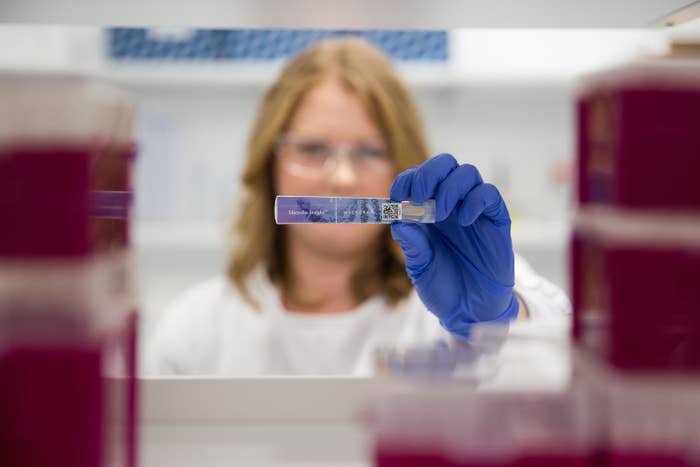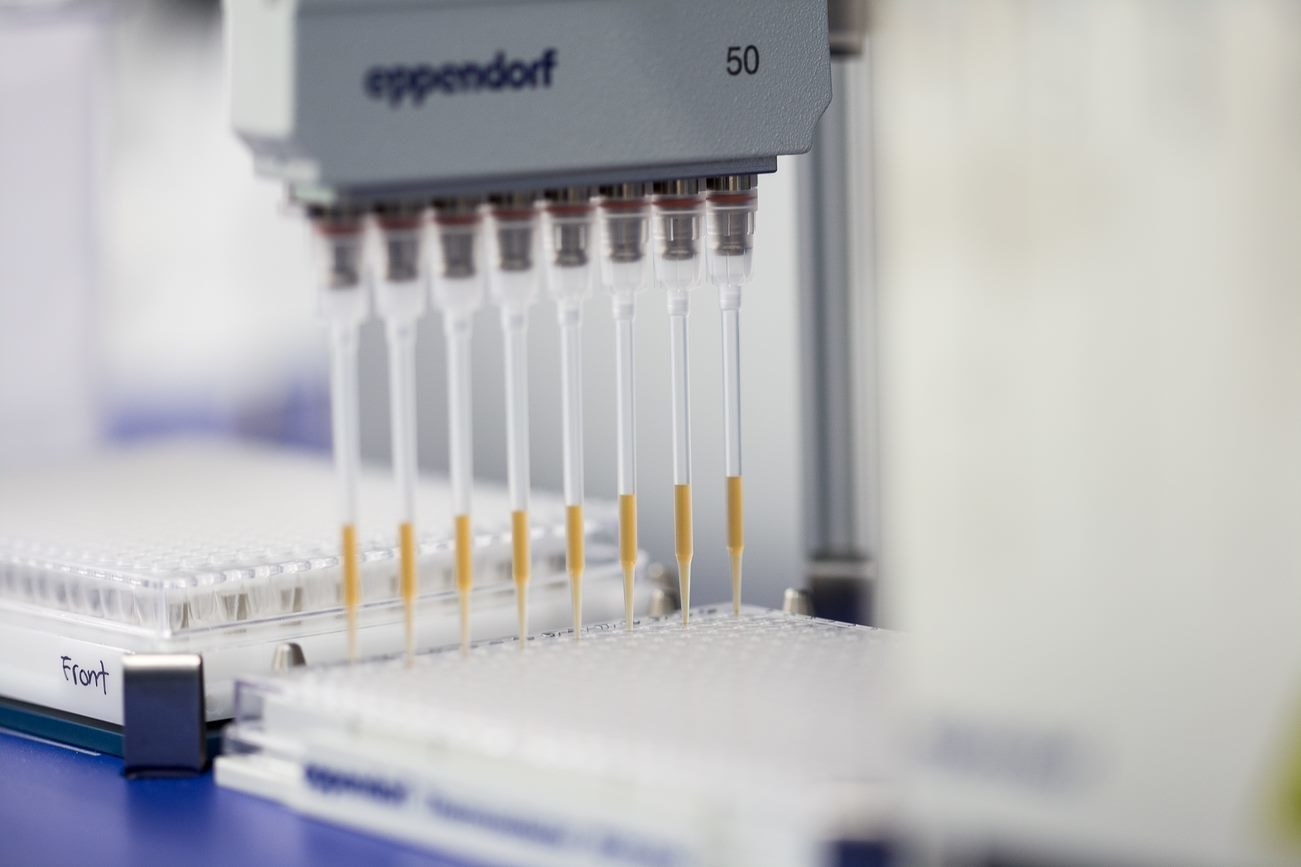Terry Woodcroft is a 66-year-old software engineer who has suffered from a host of different medical issues for as long as she can remember.
Terry has experienced inflammatory skin problems and inner-ear issues that left her dizzy and nauseous for long periods, and her body was constantly run-down.
"I'd sleep all night and then all afternoon, so I had virtually no energy whatsoever," she told BuzzFeed News.
Terry would perform "unscientific, uncontrolled" experiments on herself with diet and lifestyle changes to try and improve her health. Nothing worked, until she was forced by chance on a holiday to spend a week eating gluten-free.
Terry became convinced that her gut was the source of her symptoms.
She has now decided to investigate her gut's microbiome (the microorganisms living in the intestinal tract) via a personal home-delivered kit through Queensland-based start-up Microba.
Terry is excited about receiving her results in four weeks: "There's hope that you can actually start to go and move down a path that is based on science."
Research on the gut microbiome and its far-reaching influence in the body is a frontier science, and experts are uncertain about the value of these individualised tests.
There are more than 1,000 different species of microorganisms that have been found in the human gut's microbiome.
These colonies of microorganisms have been dubbed a "forgotten organ" because of their role in modulating immune responses and hormone processes.
The gut microbiome has also been referred to as the "second brain", for its functional connection to memory, mood, and cognition.
Through various mechanisms, these gut microorganisms influence the sleep and stress functions of the hypothalamus, pituitary glands, and adrenal glands.
Alcoholism, chronic fatigue syndrome, depression, anxiety, and restless leg syndrome have all been linked to an imbalance in the gut's microorganisms. However, the precise nature of these relationships is still unclear as the cause and effect cycle isn't known.
The gut microbiome development is influenced from the very beginning of a human's life by factors such as method of birth (C-section or vaginally) to breastfeeding and whether the house they were raised in had a garden.
However, it is possible to change the microbiome with diet and lifestyle throughout adulthood.

Research projects such as MetaHIT and the Human Microbiome Project are contributing large amounts of data to catalogue the genes found in the gut microbiome, providing population data and allowing for a future focus on these microorganisms in public health initiatives.
Microba is a company based at the University of Queensland (UQ) founded by two UQ microbiology researchers that offers advanced analysis of an individual's gut microbiome via a mailed kit.
The company also launched a customer information platform last month designed to provide consumers with information about their personal microbiome and the dietary information they need to promote the growth of beneficial bacteria.
Microba uses an advanced form of DNA sequencing known as metagenomics sequencing that provides detailed insight into all of the microorganisms present in the gut (including bacteria, archaea, fungi, and protists).
Metagenomics sequencing is a technique that was first outlined in 1998 and aims to catalogue all of the genes from a community of microorganisms by sequencing all of the DNA in a given sample.
The company is also building its own database of Australian microbiomes for population research and to understand the correlation between gut microorganisms and particular symptoms.
Terry has opted to anonymously include her own gut data in this catalogue and believes that it will benefit public medicine in the future.
A 2005 report on the applications of the technique said that metagenomics has "huge potential in revealing the mechanisms and correlations between the human intestinal microbiome and diseases".
However this testing does not provide diagnostic information and can only be used to give a snapshot of individual microbiomes to show the tendencies of a gut's microorganisms (such as whether or not they digest carbohydrates, protein, or fat effectively).
Dr Joanna McMillan, a nutritional scientist and dietician, believes that microbiome tests will play a key role in individualised medicine in the future.
"I can see a point ... where people get their DNA tested so that they know what the genetic influences are on what they should be doing lifestyle-wise, and we'll have microbiome testing that gives them further insight," she told BuzzFeed News.

McMillan also believes that the microbiome tests can be used as a form of preventative medicine, to distinguish imbalances or an absence of important bacteria early before a disease pathology develops.
"I don't think that this is a test just for people who have problems with their gut".
Dr Hannah Wardill, a biomedical research fellow from the University of Adelaide, told BuzzFeed news that this approach to testing our microbiomes might be going too far.
"There's this real obsession with people's self-control and autonomy over their health, but I think people are taking it to the next level with no real need to do so," she said.
Wardill is also concerned that Microba's testing might not be all that useful for the general population when we still do not understand the causative relationships between gut health and disease.
Wardill believes that despite the sophistication and potential of the tests, there may be "very little merit" in buying them, and that there is a risk of customers misinterpreting their results.
The tests are priced at $349 and Wardill notes that this cost might create a "socioeconomic bias" in the Australian databases of microbiomes.
McMillan concedes that the current cost will impede Microba's ability to amass accurate population data.
"Australian families who are struggling to make ends meet are not going to be the ones who are going to be able to go and spend several hundred dollars on a test," she said.
However McMillan notes that there has been a significant reduction in the cost of these kits in recent years with prices in the thousands of dollars at early development stages.
"The cost has already come down dramatically and so I expect it will come down more as more people do it."
Terry says that the issue of cost does not necessarily matter to her, and says that if she had been able to look at her microbiome earlier, it could have saved her a lot of money in pathology tests.
"I'm happy to pay for it because I'm looking for answers," she said.
